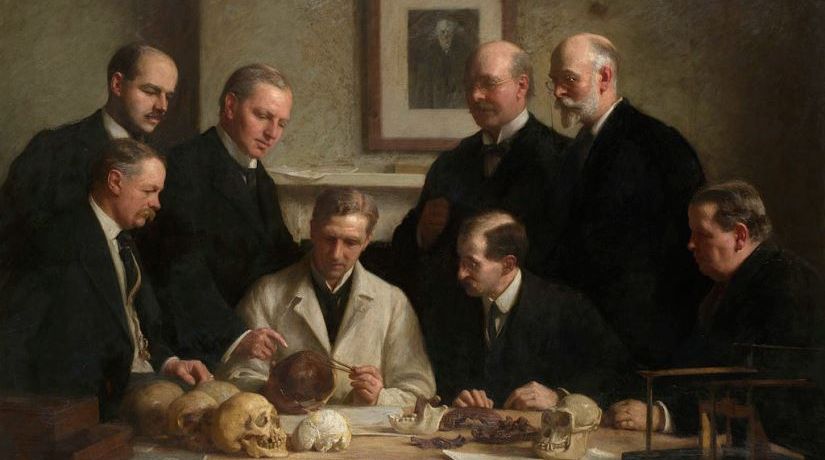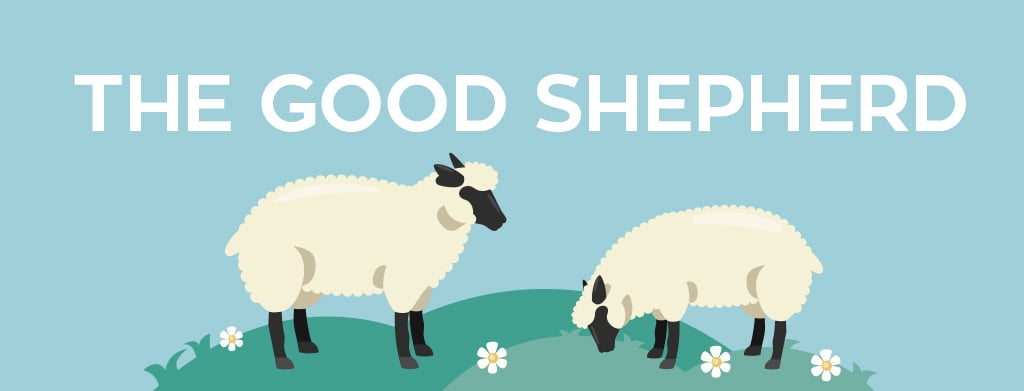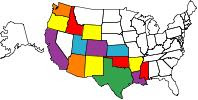.
Frauds and Hoaxes in the Evolutionary Tree
 “If evolution were true, intermediate links should be found everywhere in the fossil record. But they remain missing, and some famous examples have turned out to be frauds.
“If evolution were true, intermediate links should be found everywhere in the fossil record. But they remain missing, and some famous examples have turned out to be frauds.
Despite being exposed as lies and forgeries, some supposed “missing links” in the fossil record made a deep and lasting impression on the popular conception of the theory of evolution. Some continue to be found in old textbooks and articles used in some schools.
Let’s review some of the falsified evidence.
Deceptive dating
Professor Reiner Protsch von Zieten was famous for finding missing links suggesting interbreeding of Neanderthals with humans—until he was exposed in 2005.
The Guardian newspaper’s correspondent in Berlin, Luke Harding, wrote about this in his article “History of Modern Man Unravels as German Scholar Is Exposed as a Fraud”:
“His discovery appeared to show that Neanderthals had spread much further north than was previously known.
“But … a crucial Hamburg skull fragment, which was believed to have come from the world’s oldest German, a Neanderthal known as Hahnhöfersand Man, was actually a mere 7,500 years old, according to Oxford University’s radiocarbon dating unit. The unit established that other skulls had been wrongly dated too.
Far from the sensational missing links they were dressed up to be, his finds have turned out to be some of the weakest links.
“Another of the professor’s sensational finds, ‘Binshof-Speyer’ woman, lived in 1,300 BC and not 21,300 years ago, as he had claimed, while ‘Paderborn-Sande man’ (dated at 27,400 BC) only died a couple of hundred years ago, in 1750.” (For more about the accuracy of dating methods, see our article on “Geologic Dating Methods.”)
The professor was forced to retire in disgrace because of his numerous “falsehoods and manipulations.” Far from the sensational missing links they were dressed up to be, his finds have turned out to be some of the weakest links.
And it wasn’t the first time.
Jaw-dropping deception
As the Titanic was being fitted out for her maiden voyage, the unearthing of Piltdown man, another so-called missing link, came on the evolutionary scene. Charles Dawson, an English solicitor and amateur archaeologist, said he found this now well-known hoax just 15 miles from his home in East Sussex.
At the time a few scientists questioned the discovery, but many others gave their support to it as a genuine evolutionary link. This concocted evidence made its way into the classroom (including mine as I was growing up).
Much later and after the two world wars, two Oxford University scientists inspected the Piltdown find and carried out further tests. It soon was shown to be nothing less than a blatant and premeditated forgery. It was an amalgamation of a human skull joined to the jawbone of an orangutan.
There was evidence also that the lower teeth of the assembled skull had been filed down to make them look more human, and that all of the bones had been colored to match the Piltdown gravel pit. The human skull was just 600 years old.
The Piltdown chicken
Piltdown was glibly attached to another evolutionary rip-off once it was exposed. The nickname Piltdown chicken (sometimes called the Piltdown turkey) was given to Archaeoraptor, a supposed missing link between birds and dinosaurs.
In 1999 National Geographic magazine gave an account of Archaeoraptor’s discovery in China.
The magazine published a glossy article documenting the find. The fossil was about the size of a large chicken and appeared to have the tail of a reptile. The magazine believed it was publishing a report on a missing link between dinosaurs and birds.
What the magazine publishers didn’t know at the time was that they were looking at the remains of not one but two creatures. Fragments of unrelated fossils were joined to complete the skeleton, making an assortment that hoodwinked the scientific world and boosted the theory of evolution.
Chinese scientists initially helped to classify the Archaeoraptor fossil, but later on they found in the same site a second fossil containing an exact, mirror-image of the Archaeoraptor’s tail—attached to a very different body. It was clear that con artists had taken part of the fossil bearing the tail and glued it to the bird fossil, thereby producing the dinosaur-bird deception.
National Geographic acknowledged its mistake in the March 2000 issue of the magazine.
Examine the evidence
The history of the evidence claimed for the theory of evolution includes a number of misconceptions and outright frauds. The human motivation behind these scams is often for personal gain, prestige and—for now—to give credibility to a popular theory.
We believe it is worth examining the evidence for the evolutionary theory and the evidence for creation in more detail.
 For more on this subject, see “Intelligent Design: Can Science Answer the Question, Does God Exist?” “Can Christians Believe in Evolution?” “The Fossil Record and Creation” and related articles on the Life, Hope & Truth website.
For more on this subject, see “Intelligent Design: Can Science Answer the Question, Does God Exist?” “Can Christians Believe in Evolution?” “The Fossil Record and Creation” and related articles on the Life, Hope & Truth website.
________
 Exodus 20:12
Exodus 20:12
(12) "Honor your father and your mother, that your days may be long upon the land which the LORD your God is giving you.” New King James Version
“Obedience to this command does not stop at a certain age. Genesis 48:12 reveals the deep respect Joseph had for Jacob when he brought his two sons before him for a blessing: "So Joseph brought them from beside his knees, and he bowed down with his face to the earth." With adulthood, the time may come when it is no longer necessary or right for a person to obey his parents strictly. But God's requirement to honor them never ceases. This duty pays dividends by giving us access to the wisdom of years.
Honor has wider application than obey. It expresses itself in courtesy, thoughtfulness, mercy, and kindly deeds. We would hardly consider one to be honoring his parents who, when they fall sick, weak, and perhaps blind in old age, does not exert himself to the utmost for them and their support in their need.
Just as surely as God requires parents to nourish, defend, support, and instruct the children in their lowest state of infancy, so children in their strength should support their parents in their weakness. Turn about is fair play because the Scripture says, "Whatever you want men to do to you, do also to them" (Matthew 7:12). Each of us would want someone to care for us in our time of need." From: https://www.theberean.org/index.cfm/main/default/id/741/ver/NKJV/exodus-20-12.htm
________
Statin Muscle Toxicity
“Video updated 3/5/2012 to reflect new FDA warning labels citing risks of confusion, memory loss, new onset diabetes, and muscle injury. Even people who don’t experience pain or weakness on cholesterol-lowering statin drugs may be suffering muscle damage.”
YouTube: https://youtu.be/kdCBHoA3s1s
Below is an approximation of this video’s audio content. To see any graphs, charts, graphics, images, and quotes to which Dr. Greger may be referring, watch the above video.
"Last week, February 28, 2012, the FDA announced newly mandated safety labeling for cholesterol-lowering statin drugs—such as Lipitor, Mevacor, Crestor, Zocor, and Vytorin. The FDA issued new side effect warnings regarding the increased risk of brain-related side effects, such as memory loss and confusion, an increase in blood sugar levels, and risk of new onset diabetes associated with taking this class of drugs.
One prominent cardiologist described the Faustian bargain to the Wall Street Journal. Apparently, “1 to 2 out of 100 patients at risk for a heart attack will avoid one” by taking statins. But research now suggests for every 200 people taking a statin, 1 will develop diabetes.
Wouldn’t it be great if there were some way to lower the risk of heart attacks and diabetes at the same time?
First, let me address the third side effect newly addressed by the FDA: the risk of muscle injury. We’ve known that about 1% to 5% of patients suffer enough muscle damage to cause pain and overt weakness, but only about 1 in 6,000,000 or 7,000,000 actually suffers enough muscle damage to kill them. It’s called fatal rhabdomyolysis, where your muscles break down so rapidly your urine starts looking like this, as you literally start peeing your muscles down the toilet. Then your kidneys fail, and you die.
But that’s like winning the lottery chances. There’s a 1 in 2 chance we’ll die of heart disease—so, no surprise Lipitor is the #1 prescribed drug on the planet Earth.
But then, this study was published. Normally, if you have muscle pain on a statin, you go to a doctor, and they take blood to see if you have elevated levels of muscle breakdown products in your bloodstream. Now if you don’t, they basically say, oh, it’s all in your head—go home, keep taking your medicine.
What these researchers did, though, was they instead took these people, and got muscle biopsies, and proved that even though their blood levels were normal, they were indeed suffering muscle damage. The damage just wasn’t leaking into their bloodstream. Well, if that’s the case, if you can’t pick it up with the test, maybe everyone taking statins is suffering muscle damage—whether they’re experiencing pain or not.
And that’s exactly what they found. Clear evidence of skeletal muscle damage in statin-treated patients—all statin-treated patients. This is what a muscle is supposed to look like under a microscope. This is your muscle; this is your muscle on statin drugs.
But, the degree of overall damage was slight. Most people don’t even feel any pain with statins, so what’s the big deal?
This is the big deal. New study on statin therapy, muscle function, and falls risk. Hundreds of older men and women followed for a few years, and those who were on statins suffered greater declines in muscle strength and muscle quality, and greater increases in falls risk.
So we don’t want to be taking this drug unless we really need it. The problem is, because heart disease remains our #1 killer, most everyone does need to take a statin drug like Lipitor every day for the rest of our lives—except for one group. This is from the editor-in-chief of the American Journal of Cardiology: “Only pure vegetarians for practical purposes do not need statins. Most of the rest of us do!” So, it’s our choice." From: https://nutritionfacts.org/video/statin-muscle-toxicity/
_______
 “In what is often called the Lord's Prayer, Jesus told us to pray for God's Kingdom to come. Why? What does it mean to say "Your kingdom come"?
“In what is often called the Lord's Prayer, Jesus told us to pray for God's Kingdom to come. Why? What does it mean to say "Your kingdom come"?








 “If evolution were true, intermediate links should be found everywhere in the fossil record. But they remain missing, and some famous examples have turned out to be frauds.
“If evolution were true, intermediate links should be found everywhere in the fossil record. But they remain missing, and some famous examples have turned out to be frauds.
 “They are everywhere: on the road, at work, in the grocery line, at church and even in our own family. How can we deal with difficult people in a godly way?
“They are everywhere: on the road, at work, in the grocery line, at church and even in our own family. How can we deal with difficult people in a godly way?










